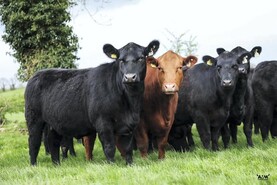The Department of Agriculture in the Republic of Ireland has issued 2,274 bovine viral diarrhoea (BVD) notices this year to farmers whose neighbours are retaining persistently infected (PI) animals.
As of last week, 0.01% (five) of all herds were retaining PI calves more than three weeks after the date of the first test. The BVD notice letters, previously dubbed name-and-shame letters, are sent to neighbouring herds to state that a farm in their area is retaining PI animals. To date this year, 2.29m calves were tested for the disease and of these, 99.22% tested negative. Some 734 animals tested positive and five tested inconclusive.
Interestingly, 16,515 tags that came in for testing were empty.
Investigations
The latest figures from the Department of Agriculture to the end of September show that 282 targeted advisory service on animal health investigations have taken place. These investigations take place after a BVD positive or inconclusive animal is identified.
Records indicate that 35,713 animals have been vaccinated against BVD so far this year, the Department said.
The Department funds the full cost of the test under the investigation and the vaccination of eligible females in each affected herd for a two-year period as part of the herd investigation.
So far this year, payments issued by the Department have amounted to €770,000.
Northern Ireland
In Northern Ireland (NI), BVD notice letters are currently not issued to neighbouring farmers if someone in the local area has retained a PI animal.
However, proposals for “neighbourhood notifications” are to be included in an upcoming consultation on new BVD legislation. Herds with retained PI cattle in NI are not subject to movement restrictions, although the Department has said it is “exploring” if this measure should also be introduced.
Despite being unable to move directly into other herds, through marts or into meat factories, the latest official figures show that 89 BVD positive animals have been kept on NI farms for at least five weeks.






 This is a subscriber-only article
This is a subscriber-only article










SHARING OPTIONS: